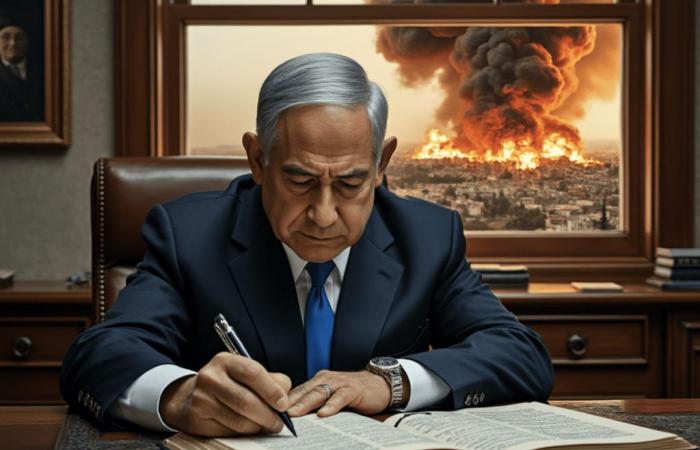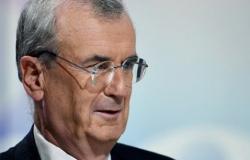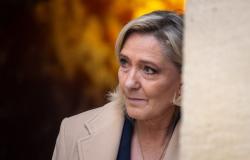– Advertisement –
Israel is expected to announce a ceasefire with Lebanon at a crucial news conference scheduled for 6 p.m. today. This decision, awaited for several days, marks a decisive step after more than a year of intense conflict between Israel and Hezbollah. A similar conference should be held on the Lebanese side unless there are any last minute surprises.
October 7, 2023: Major attack in Gaza triggers regional escalation
On October 7, 2023, Hamas launched an unprecedented offensive from the Gaza Strip, marking a significant intensification of the Israeli-Palestinian conflict. Thousands of rockets were fired towards Israel, accompanied by armed infiltrations into areas near Gaza, causing hundreds of deaths and injuries.
In solidarity with Gaza, Hezbollah has increased declarations of support and intensified exchanges of fire with Israel along the northern border. These actions quickly transformed a local crisis into a regional confrontation, mobilizing global diplomatic efforts to contain the escalation.
September 27, 2024: the assassination of Hassan Nasrallah, a decisive turning point
On September 27, 2024, Israel struck a strategic blow by eliminating Hassan Nasrallah, the iconic leader of Hezbollah, in a targeted air attack in Beirut. This operation, seen as a major blow against the Shiite organization, triggered immediate reprisals. Hezbollah has intensified its strikes against northern Israel, targeting cities such as Kiryat Shmona and Haifa.
Nasrallah’s assassination exacerbated regional tensions and tested the resilience of Hezbollah, whose hierarchy was disrupted by the loss of its historic leader. The organization nevertheless continued its operations, consolidating its positions in southern Lebanon despite continued Israeli strikes.
October 1, 2024: Launch of an Israeli ground operation in Lebanon
On October 1, 2024, Israel launched a large-scale ground offensive in southern Lebanon. This operation, officially intended to neutralize Hezbollah’s military infrastructure, targeted strategic strongholds such as Nabatiyeh, Bent Jbeil and Baalbek. The ground clashes were accompanied by intensive bombardments, causing significant losses among Lebanese civilians.
The United Nations quickly denounced the humanitarian impact of this operation, highlighting the displacement of more than 300,000 people and the massive destruction of civilian infrastructure. Despite this criticism, Israel has maintained that its actions are aimed at ensuring the safety of its citizens in the face of incessant rocket fire.
Diplomatic efforts for a truce
Since the beginning of November 2024, international pressure to end the conflict has intensified. The United States, via its envoy Amos Hochstein, and France, under the leadership of Emmanuel Macron, played a key role in mediation. The discussions resulted in a draft agreement based on United Nations Resolution 1701, already adopted in 2006, but never fully implemented.
The agreement includes several key points:
- An immediate ceasefire between Israel and Hezbollah.
- A gradual withdrawal of Israeli troops from southern Lebanon.
- A reinforced deployment of UNIFIL (United Nations Interim Force in Lebanon) to monitor the border.
- International guarantees to prevent any resumption of hostilities.
Internal challenges in Israel and Lebanon
In Israel, the security cabinet, led by Benjamin Netanyahu, had to overcome internal divisions before approving this ceasefire. While some government members, notably National Security Minister Itamar Ben-Gvir, expressed reservations about the deal, others stressed the urgency of ending a protracted conflict that was draining the country’s resources.
In Lebanon, the interim government of Najib Mikati faces colossal challenges. In addition to rebuilding devastated areas, he must manage an unprecedented humanitarian crisis, worsened by the country’s economic collapse. Internal political tensions, exacerbated by the war, further complicate the situation, with Hezbollah remaining an essential but controversial force on the national scene.
Regional implications
The announcement of this ceasefire could have significant repercussions throughout the region. Iran, Hezbollah’s main backer, is closely monitoring the terms of the deal, seeking to preserve its influence in Lebanon. At the same time, the Gulf countries, notably Saudi Arabia, hope that this truce will pave the way for lasting stabilization, making it possible to revive their investments in the country.
China and Russia, while calling for de-escalation, seek to take advantage of this context to strengthen their strategic position in the Middle East. Moscow, in particular, could use this agreement as an opportunity to increase its mediation in the region, similar to its role in Syria.
An impatiently awaited press conference
The press conference scheduled for 6 p.m. should formalize these agreements, marking a crucial step in the management of this crisis. Details on the exact terms of the ceasefire, the implementation mechanisms and the guarantees offered will be closely scrutinized by the international community and the media.
– Advertisement –






